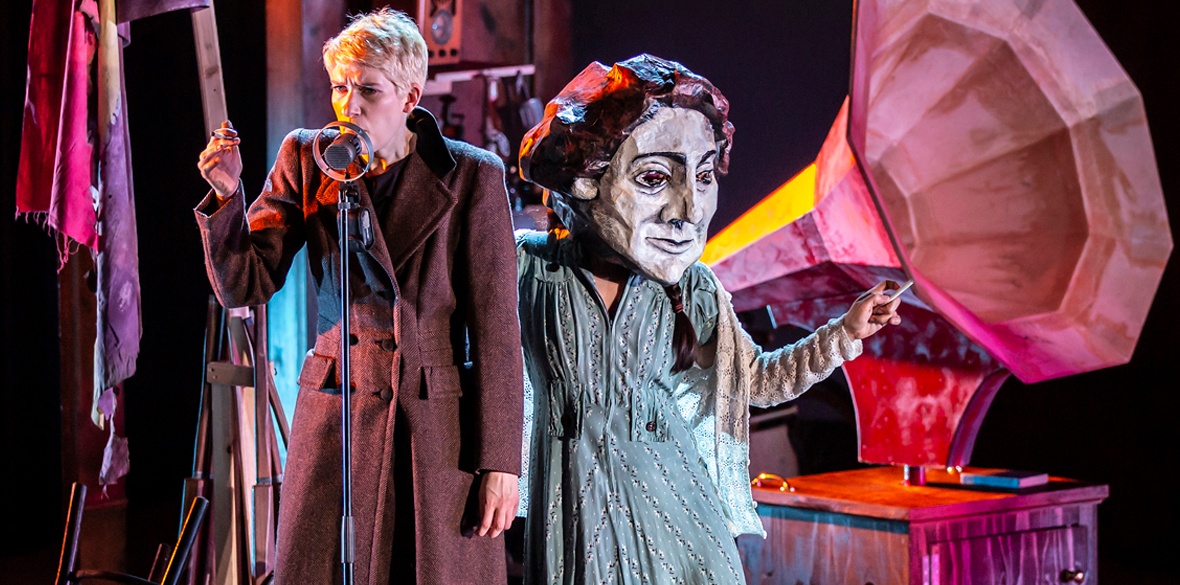This is the last article you can read this month
You can read more article this month
You can read more articles this month
Sorry your limit is up for this month
Reset on:
Please help support the Morning Star by subscribing here
Red Ellen
Royal Lyceum Theatre
Edinburgh
YOU can only be grateful to learn about Ellen Wilkinson, the pioneering socialist MP who lead the Jarrow March in 1936 and, as minister of education under Attlee, introduced many school reforms in a short period, such as free milk and lunches, and raising the leaving age from 14 to 15.
But when you weigh her political life against the character on show in this Edinburgh/Nottingham/Northern Stage co-production, you are left pondering the choices made by writer Caroline Bird, and director Wils Wilson.
That Wilkinson was in fact a founder member of the Communist Party of Great Britain in 1921, and a successful novelist with two works of fiction on the shelf alongside her seven works of political history and theory, and a long-standing suffragist, feminist and organiser comes as a surprise.
The Wilkinson on display is a much lesser figure, neither intellectual, not artist, nor ideologue. She is rather a strident, harassed asthmatic with daddy issues. She is reduced to a compromised figure (which she surely wasn’t!) barely able to combat the sexist patronising environments depicted and in whom the hope for revolutionary change has been negotiated away, and extinguished.
As a portrait of the only woman in Attlee’s cabinet, alongside the Bevins, Westwood and the rest of those heroes, this is surely a travesty.
None of which is to detract from the commitment that Bettrys Jones brings to the stage as Ellen, but rather to observe the lack of complexity that characterises the production.
It unfolds like a rapid-fire comic strip of scenes.
Famous people – Einstein, Churchill and Hemingway – are invoked simply to perform caricatures of themselves. Ellen is made to spout Blairite jargon – did communists, or socialists, or anyone in the 1930s really talk about politics as an “easily digestible narrative?”
The most touching scene is one where she allows an elderly shipyard worker to dissuade himself from joining the march. Herein, you feel, lay the kernel of a real play and the opportunity to examine the relationship between a budding political socialism and the working class.
But this micro-drama is squeezed in among many others and the effect is to subject the audience to a comic-strip version of history, full of empty symbols and bereft of the “epic” structure that might do it justice. The whole thing feels over scaled, as though designed for a smaller theatre.
This is Wilkinson’s life played as a tragic sitcom, and surely it was neither.
Until May 21, Box Office 0131 248 4848 / [email protected].










